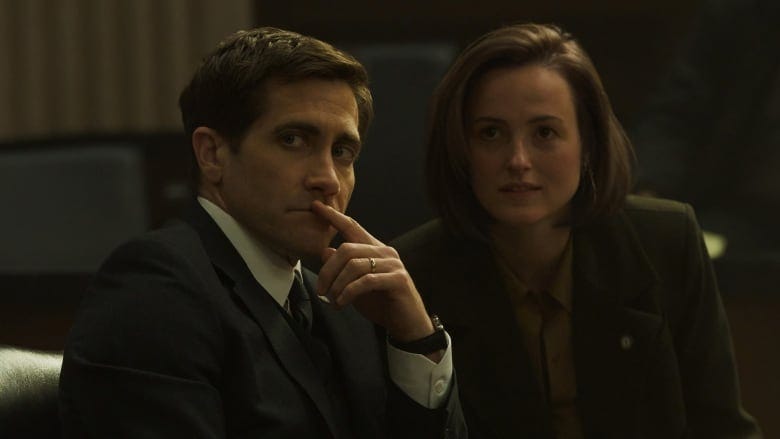This and That (10)
"Nothing in life is as important as you think it is while you are thinking about it."
1.
Since my last This and That, I’ve done three podcasts with Robert Wright. (We usually do them bi-weekly, so there should be more, but my travel schedule got in the way). The two most recent ones were mainly devoted to American politics, focusing on the assassination attempt on Trump and the transition from Biden to Harris.
And before that, we did one that was more AI-focused:
As always, the first part of the podcast is available to everyone, and paid subscribers to Small Potatoes can access the paywalled hour at the end (which is a lot less inhibited).
A while ago, I wrote a post called How to Be a Good Podcast Guest, which ended with a list of “Bests,” including this one:
The best podcast that I’ve never been on? I’m a fan of Conversations with Tyler. Tyler Cowen asks bizarrely specific questions that are precisely tailored to his guests’ expertise. (“Hello. Since about 2004, there has been a decline in the quality of most street food in Plovdiv, Bulgaria, but somehow the kebabs remain excellent. What are the three most plausible theories of this?”) It’s more interview than conversation, but he makes it work.
Well, now I’ve been on it. Indeed, Tyler asked me bizarrely specific questions that were precisely tailored to my expertise. But it was more of a conversation than an interview, and our discussion went in unusual and exciting directions. It was a privilege to talk with Tyler, and I count this as one of my favorite podcast appearances ever. Let me know what you think!
2.
As I said, I’ve been traveling, so I’ve been reading a lot. Here are a few recommendations.
Deep Utopia by Nick Bostrom is creative, engaging, and playful. I’ll discuss some of the book's ideas in a later post.
I haven’t read David Nicholls before, but someone recommended his newest book, You Are Here, and I loved it—it was warm, funny, and moving. The New York Times has a nice review.
Captivating [and] flawless...An affectingly hard-won romance. [Michael is] a sturdy and slyly amusing authority figure, … flailing amid the debris of a loving marriage gone sour. Marnie is a compulsively witty, winningly cranky near-agoraphobe...Both protagonists are prickly, smart and desperately yearning, but utterly guarded for understandably good reasons. Nicholls builds his own erotic and at times wrenchingly emotional suspense as the would-be lovers reveal past mishaps and surrendered dreams... As in the best romances, we cherish Michael’s and Marnie’s difficult personalities, and relish the unlikely process that might bring them together. The novel is sharp-tongued and irresistible.
A long time ago, I read Scott Turow’s Presumed Innocent, which is the story of a prosecutor, Rusty Sabich, on trial for the murder of his lover. It’s one of my favorite novels ever—tremendously suspenseful. One of its cool features is that it’s written in the first person, but you don’t know until the end whether our narrator, Rusty, actually did it.
I liked the 1990 movie starring Harrison Ford (very faithful to the book), and last month, I watched the Apple TV series starring Jake Gyllenhaal (less faithful, and I won’t give away whether the ending is different.)
It’s neat to see how a story gets adapted differently in 2024 than in 1990. Some differences are what you’d expect—the cast of the 2024 series was far more diverse than either the book or the earlier movie. Other differences reflect more subtle changes in how movies and TV series are made. Harrison Ford’s Rusty Sabich was handsome, of course, but he looked normal, and you could see him as a prosecutor in his late 40s. But now all male movie stars must be buff, and Gyllenhaal, fresh from Road House, was in freakishly good shape. He didn’t look like a family man with a demanding office job; he looked like someone who spent several hours a day in the gym, and this detracted from the realism of the whole thing.
I was already familiar with some of Turow's other novels, and when I thought of going to law school myself, I read his nonfiction book One L, about his first year at Harvard Law School. I decided to spend my vacation going full completist and downloaded all of his other novels. (Check Turow’s website for a complete list)
I enjoyed most of them. My favorites were Reversible Errors, The Laws of Our Fathers, and, most of all, Innocent. This last book, published in 2010, brings back Rusty Sabich and puts him on trial again, pitted against the same prosecutor—this time, he’s accused of murdering his wife! Once you get past the eye-rolling premise, the novel is genuinely suspenseful.
3.
Remember when someone shot Trump? His defiance after being punctured by an assassin’s bullet was so impressive that many people on my Twitter feed seemed to believe that the election was effectively over. How could people not vote for this man?
Since then, Harris has replaced Biden, and Trump has dropped in the polls. The assassination attempt just didn’t seem to matter as much as many people, both pro-Trump and anti-Trump, thought it would. And this made me think of the work of Daniel Kahneman, who died several months ago. I wrote a post in Kahneman’s honor that ended with this:
There’s a sentence of Kahneman’s that sums up his work on the focusing illusion. It is one of the wisest things I’ve ever read. I’ve repeated it to myself many times, and it always reassures me. Maybe you’ll find it useful as well.
Nothing in life is as important as you think it is while you are thinking about it.
Now, this is not literally true. During Biden’s disastrous performance in his debate with Trump, most people watching thought it would have a significant effect on the race—and they were right. And sometimes, things matter more than you think they will. When COVID cases started to emerge, some prominent intellectuals told people not to take this too seriously; it wasn’t such a big deal.
But Kahneman is right that we are biased toward exaggeration. The best advice when absorbing political news, particularly during an election season, is to take a breath and see where things stand in a few days. It’s probably not so important.
This is also good advice for everyday life. For me, bad events can feel all-encompassing. A lost passport, an academic rejection, an angry fight with someone I love—it’s all over; things will never be right again. I try to remind myself that, over time, the bad events won’t fill my head in the same way. Things will go back to normal. As I said in my post, I use Kahneman’s line as my mantra during these bad times, and I recommend you do the same. Say it with me:
Nothing in life is as important as you think it is while you are thinking about it.








Regarding the arguments against empathy in the CWT: I've always understood your main objection against empathy is that it is used inappropriately in big picture arguments like how to design a city or pass a law or approve a drug treatment whereas it is still appropriate in family or friendship situations. Did I get you wrong? Is empathy always bad?
Completely agree on Tyler Cowen. He is a nerd’s nerd, and when he gets with the right interviewee, it’s magic. Looking forward to listening.